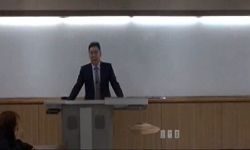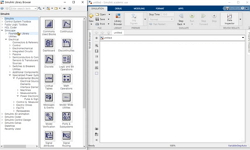이 글에서 필자는 코크레인의 `음악적 표현성의 시뮬레이션 이론`을 비판적으로 고찰한 후 이것을 더욱 정교화하고 확장하여 좀 더 포괄적이고 설득력 있는 이론으로서 `음악적 표현성에 대...
http://chineseinput.net/에서 pinyin(병음)방식으로 중국어를 변환할 수 있습니다.
변환된 중국어를 복사하여 사용하시면 됩니다.
- 中文 을 입력하시려면 zhongwen을 입력하시고 space를누르시면됩니다.
- 北京 을 입력하시려면 beijing을 입력하시고 space를 누르시면 됩니다.

음악적 표현성에 대한 확장된 형식의 시뮬레이션 이론 = A Simulation Theory of Musical Expressivity - An Expanded Version
한글로보기https://www.riss.kr/link?id=A102929265
- 저자
- 발행기관
- 학술지명
- 권호사항
-
발행연도
2017
-
작성언어
Korean
- 주제어
-
등재정보
KCI등재
-
자료형태
학술저널
-
수록면
309-344(36쪽)
-
KCI 피인용횟수
0
- DOI식별코드
- 제공처
- 소장기관
-
0
상세조회 -
0
다운로드
부가정보
국문 초록 (Abstract)
이 글에서 필자는 코크레인의 `음악적 표현성의 시뮬레이션 이론`을 비판적으로 고찰한 후 이것을 더욱 정교화하고 확장하여 좀 더 포괄적이고 설득력 있는 이론으로서 `음악적 표현성에 대한 확장된 형식의 시뮬레이션 이론`을 제안한다. 청자에게 즉각적으로 환기되는 원초적 느낌을 대상으로 하는 `낮은 수준`의 시뮬레이션에 전념하는 코크레인의 이론은 음악의 즉각적이고 국부적인 정서표현성이 인식되는 기제는 어느 정도 성공적으로 해명하는 반면 인지적으로 고차원적인 정서에 대한 음악의 표현성이 인식되는 기제는 전혀 해명하지 못한다. 또한 코크레인의 이론은 청취 시 발생하는 음악과 청자 간의 역동적인 상호작용을 고려하지 않은 채 청자를 음악에 즉각적으로 반응하는 수동적인 존재자로서만 간주한다. 필자는 `높은 수준`의 시뮬레이션을 도입할 때 이러한 문제들이 해결된다고 주장하며 코크레인의 이론에 높은 수준의 시뮬레이션을 도입함으로써 코크레인의 이론을 확장할 것을 제안한다. 궁극적으로 필자는 필자가 제안하는 `음악적 표현성에 대한 확장된 형식의 시뮬레이션 이론`이 코크레인의 이론이 갖는 문제들뿐만 아니라 음악의 정서표현성에 대한 기존의 담론들이 가지는 문제들 역시 성공적으로 극복하며 그것들이 정당하게 주목하거나 명료한 설명을 제시하는 데 실패한 기제들에 대해 더 나은 해명을 제시한다고 주장한다.
다국어 초록 (Multilingual Abstract)
In this essay, I critically examine Cochrane`s `simulation theory of musical expressivity` (2009) and then propose its expanded version as an enhanced and more comprehensive theory. While Cochrane`s theory, which commits to the `low-level` simulation ...
In this essay, I critically examine Cochrane`s `simulation theory of musical expressivity` (2009) and then propose its expanded version as an enhanced and more comprehensive theory. While Cochrane`s theory, which commits to the `low-level` simulation that concerns the primitive feelings immediately aroused in listeners, elucidates quite successfully the mechanism underlying our recognition of the musical expressivity at the local and cognitively low level, it fails to give an account of the mechanism underlying our recognition of the musical expressivity for cognitively higher emotions which usually needs a considerable span of musical unfolding. In addition, Cochrane`s theory generally overlooks the dynamic interaction between music and listeners and sees listeners as passive beings only to respond to music immediately. I argue that these problems would be solved when we introduce the `high-level` simulation and that we should therefore expand Cochrane`s theory embracing the `high-level` simulation. Ultimately, I argue that `the expanded version of a simulation theory of musical expressivity` as I suggest overcomes successfully not only the problems in Cochrane`s theory but also those in other theories on musical expressivity providing a better account of the mechanism to which those theories fail to give due attention or to offer clarification.
참고문헌 (Reference)
1 Gallese, Vittorio, "What Is So Special about Embodied Simulation?" 15 (15): 512-519, 2011
2 Cochrane, Tom, "Using the Persona to Express Complex Emotion in Music" 29 (29): 264-275, 2010
3 Pellegrino, Giuseppe di, "Understanding Motor Events: A Neurophysiological Study" 91 (91): 176-180, 1992
4 Davies, Stephen, "Themes in the Philosophy of Music" Oxford University Press 152-168, 2003
5 Levinson, Jerrold, "The Pleasures of Aesthetics: Philosophical Essays" Cornell University Press 90-125, 1996
6 Nussbaum, Charles, "The Musical Representation: Meaning, Ontology, and Emotion" The MIT Press 2007
7 Cone, Edward T., "The Composer’s Voice" California University Press 1974
8 Kivy, Peter, "Sound and Sentiment: An Essay on the Musical Emotions, Including the Complete Text of the Corded Shell, The Arts and Their Philosophies" Temple University Press 1989
9 Goldman, Alvin I., "Simulating Minds: The Philosophy, Psychology, and Neuroscience of Mindreading" Oxford University Press 2006
10 Karl, Gregory, "Shostakovich's Tenth Symphony and the Musical Expression of Cognitively Complex Emotions" 53 (53): 401-415, 1995
1 Gallese, Vittorio, "What Is So Special about Embodied Simulation?" 15 (15): 512-519, 2011
2 Cochrane, Tom, "Using the Persona to Express Complex Emotion in Music" 29 (29): 264-275, 2010
3 Pellegrino, Giuseppe di, "Understanding Motor Events: A Neurophysiological Study" 91 (91): 176-180, 1992
4 Davies, Stephen, "Themes in the Philosophy of Music" Oxford University Press 152-168, 2003
5 Levinson, Jerrold, "The Pleasures of Aesthetics: Philosophical Essays" Cornell University Press 90-125, 1996
6 Nussbaum, Charles, "The Musical Representation: Meaning, Ontology, and Emotion" The MIT Press 2007
7 Cone, Edward T., "The Composer’s Voice" California University Press 1974
8 Kivy, Peter, "Sound and Sentiment: An Essay on the Musical Emotions, Including the Complete Text of the Corded Shell, The Arts and Their Philosophies" Temple University Press 1989
9 Goldman, Alvin I., "Simulating Minds: The Philosophy, Psychology, and Neuroscience of Mindreading" Oxford University Press 2006
10 Karl, Gregory, "Shostakovich's Tenth Symphony and the Musical Expression of Cognitively Complex Emotions" 53 (53): 401-415, 1995
11 Stueber, Karsten, "Rediscovering Empathy: Agency, Folk Psychology, and the Human Sciences" The MIT Press 2006
12 Ridley, Aaron, "Philosophers on Music: Experience, Meaning, and Work" Oxford University Press 130-146, 2007
13 Matravers, Derek, "Philosophers on Music: Experience, Meaning and Work" Oxford University Press 95-116, 2007
14 Davies, Stephen, "Musical Meaning and Expression" Cornell University Press 1994
15 Peters, Deniz, "Musical Empathy, Emotional Co-Constitution, and the “Musical Other”" 10 (10): 2-15, 2015
16 Ridley, Aaron, "Music, Value, and the Passions" Cornell University Press 1995
17 Cochrane, Tom, "Music, Emotions, and the Influence of Cognitive Sciences" 5 (5): 978-988, 2010
18 Levinson, Jerrold, "Music, Art, and Metaphysics: Essays in Philosophical Aesthetics" Cornell University Press 336-375, 1990
19 Maus, Fred Everett, "Music as Drama" 10 : 56-73, 1988
20 Goldman, Alvin I., "Mirroring, Simulating, and Mindreading" 24 (24): 235-252, 2009
21 Goldman, Alvin I., "Mirror Neuron Systems: The Role of Mirroring Processes in Social Cognition" Springer 311-330, 2008
22 Heal, Jane, "Mind, Reason and Imagination: Selected Essays in Philosophy of Mind and Language" Cambridge University Press 2003
23 Kohler, Evelyne, "Hearing Sounds, Understanding Actions: Action Representation in Mirror Neurons" 29 : 846-848, 2002
24 Juslin, Patrik N., "From Everyday Emotions to Aesthetic Emotions: Towards a Unified Theory of Musical Emotions" 10 (10): 235-266, 2013
25 Bastiaansen, Jojanneke A. C. J., "Evidence for Mirror Systems in Emotions" 364 : 2391-2404, 2009
26 Curry, Gregory, "Empathy: Philosophical and Psychological Perspectives" Oxford University Press 82-95, 2011
27 Goldman, Alvin I., "Empathy: Philosophical and Psychological Perspectives" Oxford University Press 31-44, 2011
28 Robinson, Jenefer, "Deeper than Reason: Emotion and its Role in Literature, Music, and Art" Oxford University Press 2005
29 Levinson, Jerrold, "Contemplating Art: Essays in Aesthetics" Oxford University Press 91-108, 2006
30 Zahavi, Dan, "Basic Empathy and Complex Empathy" 4 (4): 81-82, 2012
31 Gallese, Vittorio, "Action Recognition in the Premotor Cortex" 119 : 593-609, 1996
32 Cochrane, Tom, "A Simulation Theory of Musical Expressivity" 88 (88): 191-207, 2009
동일학술지(권/호) 다른 논문
-
독일 한인2세들의 정체성과 인종적 제노포비아 문제 - 마르틴 현의 두 텍스트 예 분석
- 서울대학교 인문학연구원
- 최윤영 ( Choi Yun-young )
- 2017
- KCI등재
-
도시 담론들을 통해 도시와 문명 이해하기 [서평] 고일홍 외(2014), 『사상가들 도시와 문명을 말하다』, 한길사, 410쪽.
- 서울대학교 인문학연구원
- 박배형
- 2017
- KCI등재
-
침묵에 다가가기 [서평] 차승기(2016), 『비상시의 문/법-식민지/제국 체제의 삶, 문학, 정치』, 그린비, 383쪽.
- 서울대학교 인문학연구원
- 박형진
- 2017
- KCI등재
-
유기적으로 통합된 세계로의 지향, 중앙유라시아의 비상을 꿈꾸며 [서평] 김호동(2016), 『아틀라스 중앙유라시아사』, 사계절, 271쪽.
- 서울대학교 인문학연구원
- 윤은숙
- 2017
- KCI등재
분석정보
인용정보 인용지수 설명보기
학술지 이력
| 연월일 | 이력구분 | 이력상세 | 등재구분 |
|---|---|---|---|
| 2026 | 평가예정 | 재인증평가 신청대상 (재인증) | |
| 2020-01-01 | 평가 | 등재학술지 유지 (재인증) |  |
| 2017-01-01 | 평가 | 등재학술지 유지 (계속평가) |  |
| 2015-01-07 | 학회명변경 | 영문명 : Seoul National University Institute of Humanities -> Institute of Humanities, Seoul National University |  |
| 2015-01-06 | 학술지명변경 | 외국어명 : Seoul National University the Journal of Humanites -> Journal of Humanities, Seoul National University |  |
| 2013-01-01 | 평가 | 등재 1차 FAIL (등재유지) |  |
| 2010-01-01 | 평가 | 등재학술지 유지 (등재유지) |  |
| 2007-01-01 | 평가 | 등재학술지 선정 (등재후보2차) |  |
| 2006-01-01 | 평가 | 등재후보 1차 PASS (등재후보1차) |  |
| 2004-01-01 | 평가 | 등재후보학술지 선정 (신규평가) |  |
학술지 인용정보
| 기준연도 | WOS-KCI 통합IF(2년) | KCIF(2년) | KCIF(3년) |
|---|---|---|---|
| 2016 | 0.71 | 0.71 | 0.68 |
| KCIF(4년) | KCIF(5년) | 중심성지수(3년) | 즉시성지수 |
| 0.68 | 0.62 | 1.317 | 0.2 |





 KCI
KCI KISS
KISS





